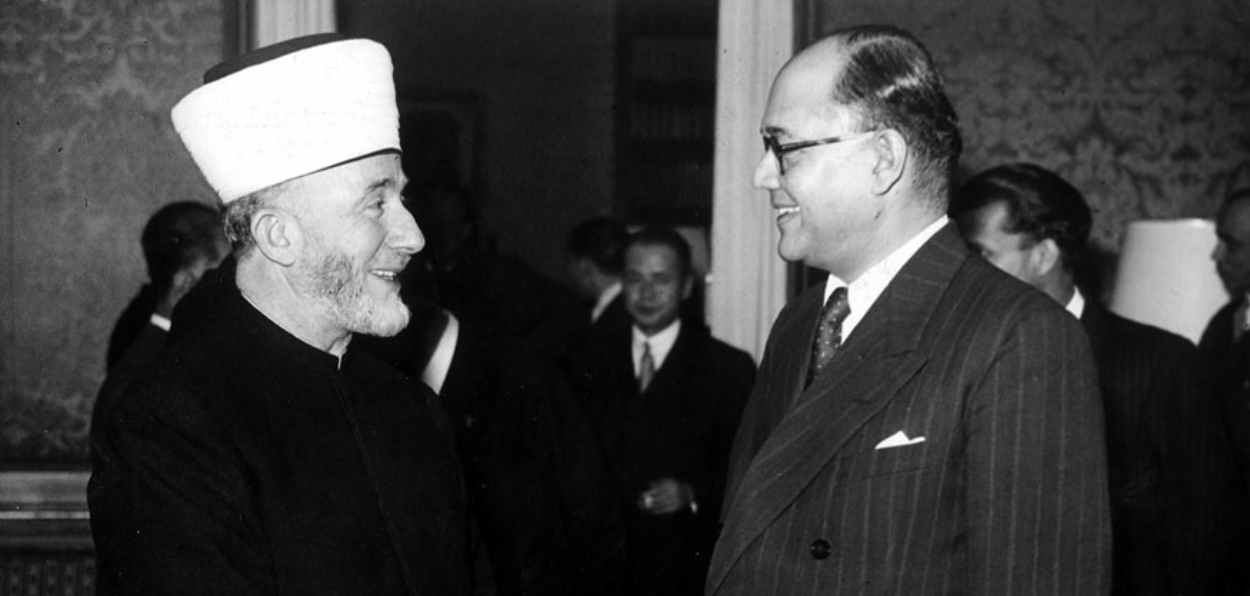
Saquib Salim
Netaji Subhas Chandra Bose was not only a revolutionary but also a political thinker. Even the fiercest of his critics agree that he had unmatched political foresight. He predicted the start of the Second World War and the partition of India before any other politician of his time. He warned Indians of a British design to partition India by reading the Palestinian issue.
Bose became the President of the Indian National Congress (INC) in 1938 and 1939. In his presidential address in 1938 Bose said, “Every empire is based on the policy of divide and rule. But I doubt if any empire in the world has practised this policy so skilfully, systematically, and ruthlessly as Great Britain. By this policy…before any power is handed over to the Palestinians, the Jews will be separated from the Arabs. An internal partition is necessary to neutralise the transference of power. The same principle of partition appears in a different form in the new Indian Constitution. Here we find an attempt to separate the different communities and put them into watertight compartments.”
He further pointed out, “The British Cabinet has to please the Jews because it cannot ignore Jewish high finance.”
In his 1939 Presidential address, Bose proposed to serve an ultimatum to the British government to leave India within a certain period. In case the demands were not met Indians should launch a militant nationwide anti-British campaign. He concluded again by reading about the situation in Palestine. While proposing this plan of action, Bose said that Britain “is now showing some signs of trying to conciliate the Arabs as against the Jews in Palestine, because she is feeling insecure in the international sphere. In my opinion, therefore, we should submit our national demand to the British Government in the form of an ultimatum and give a certain time limit.”
At the same session, with Bose as the President, a resolution for Palestine was passed. The resolution said, “The Congress has previously declared its full sympathy with the Arabs in Palestine in their struggle for national freedom and their fight against British Imperialism and has condemned the policy of the mandatory power in Palestine. Subsequent events have disclosed the continuance of a reign of terror maintained by the British army and policy in the name of law and order. The courage, determination, and sacrifices made by the Arabs in the struggle have evoked the admiration of the people of India who desire to convey to them again their greetings and good wishes for complete success in the attainment of their objective.
While sympathizing with the plight of the Jews in Europe and elsewhere, the Congress deplores that in Palestine the Jews have relied on British armed forces to advance their special privileges and thus aligned themselves on the side of British Imperialism. The Congress trusts that the Arabs and Jews will endeavour to find a basis for direct cooperation to establish an independent democratic State in Palestine with adequate protection of Jewish rights.”
Bose left India secretly in 1941 to raise an army outside India. On 25 March 1942 at his Azad Hind Radio, he told Indians from Germany, “Britain has…. for instance in Ireland and Palestine, used the religious issue to divide the people. She has been utilizing in India for that same purpose not only this issue but other imperial weapons like the Indian Princes, Depressed Classes, etc. Now Sir Stafford is in India to use the same instruments for imperialistic ends. It is no less striking that Sir Stafford is applying the old imperialist policy of working for a compromise with one section of the people while simultaneously suppressing the other.”
On 12 September 1944 in a radio broadcast from Burma, Bose reiterated that Indians should learn from the Palestinian experience. He said, “We have resolved to create a united and free India. Therefore, we shall oppose all attempts to divide her and cut her up into bits. Ireland and Palestine have taught us a lesson. We have realized that to divide a country will ruin it economically, culturally, and politically.”
The comparison of trying to carve out a Jewish state in Palestine with Jinnah’s Pakistan movement by Bose was not misplaced. Jinnah himself drew parallels with the Zionist movement. Professor Faisal Devji of Oxford University writes, “In Pakistan and Muslim India, a pamphlet published in 1943 with a preface by Mohammad Ali Jinnah… we read that “if small peoples like the Protestant Irish in Ireland, the Christian Arabs in Syria and the Jews in Palestine do not wish to lose their separate political identity, and are supported in this desire for separate existence by two of the foremost democratic nations, there is no reason why Indian Muslims should be forced to accept the position of a minority.”
Isn’t it interesting that Jinnah’s Muslim League also invoked Irish and Palestinian experiences in support of Pakistan's demand as prophesied by Bose in 1938?
ALSO READ: Durga Bhabhi: Freedom fighter who wanted her full share of revolutionary work
Bose was proved an excellent political thinker as his prophecy was endorsed by General Zia-ul-Haq, President of Pakistan, when he said in one of his interviews in 1981, “Pakistan is, like Israel, an ideological state. Take out Judaism from Israel and it will fall like a house of cards. Take Islam out of Pakistan and make it a secular state; it would collapse.”
